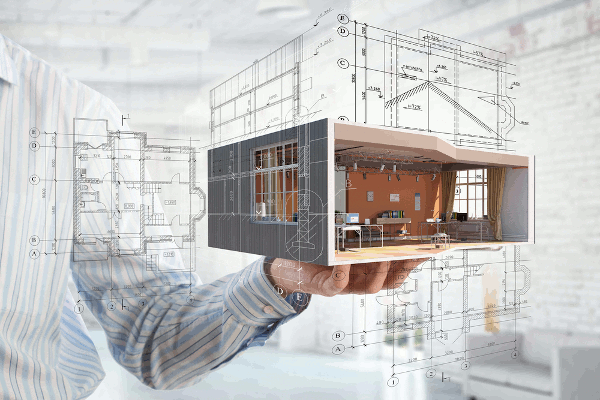How AI is Accelerating Commercial Construction Projects in Boston

Boston's commercial construction landscape is experiencing a technological revolution as artificial intelligence transforms how projects are planned, managed, and delivered. With the city leading the nation in office development with an 8.7 million square foot construction pipeline, construction companies are increasingly turning to AI-powered solutions to speed up project timelines and improve efficiency.
AI Transforming Project Scheduling and Planning
The construction industry has traditionally relied on manual scheduling processes that are time-intensive and prone to delays. However, AI is revolutionizing how Boston construction teams approach project planning. Advanced AI platforms like ALICE Technologies, nPlan, and other scheduling optimization tools are now being deployed to automatically generate multiple project scenarios and identify the most efficient construction sequences.
These AI systems can analyze historical project data, weather patterns, and resource availability to predict project completion times with unprecedented accuracy. According to industry experts, "AI will redefine construction operations in 2025, offering smarter site planning, resource allocation, and on-site execution. AI-powered generative design tools will optimize architectural, structural, and subsystems designs, reducing material waste and enhancing buildability."
Boston's Construction Giants Lead the AI Adoption
Suffolk Construction, one of the largest construction companies with $5 billion in annual revenue, has emerged as a leader in AI adoption. The company has established Suffolk Technologies, a venture capital arm that invests specifically in construction technology startups. Suffolk has even hired a Senior Director of AI Transformation to lead the organization's artificial intelligence initiatives across all projects.
Suffolk Technologies has identified AI as "the ultimate remedy to construction's productivity problem," investing in companies like Augmenta, which "uses AI to create electrical (and eventually mechanical and plumbing) designs within minutes vs months." This technology alone can reduce design time from two months to just minutes, dramatically accelerating the preconstruction phase.
Pre-Construction Planning
AI is also transforming how construction teams monitor progress and address potential delays. Companies are deploying computer vision technology and 360-degree cameras to capture comprehensive visual data of construction sites daily. These systems compare actual progress against Building Information Models (BIM) and project schedules to identify discrepancies in real-time.
For contractors looking to streamline their bidding processes and speed up bid invites, platforms like those offered by industry specialists can help automate bid management and connect with verified subcontractors more efficiently. Contractors can visit Downtobid and access AI-powered tools that analyze bid packages for completeness, accuracy and send vid invites to relevant contractors, saving significant time during the preconstruction phase.
AI-powered chatbots are becoming game-changers for interacting with construction data, allowing users to query and retrieve information directly from chat windows, whether asking for project status updates or reviewing compliance with management plans.
Measurable Speed Improvements in Project Delivery
The impact of AI on construction timelines is already showing measurable results. According to Boston Consulting Group (BCG), up to 30% of construction tasks could be automated by 2025, significantly shortening project timelines and boosting labor efficiency.
Companies using AI-powered scheduling tools are reporting substantial improvements:
- Folks have achieved a 17% reduction in construction project duration and 14% labor cost savings.
- Reduce schedule slippage by up to 50% through real-time project tracking and predictive analytics.
- Compress programme timelines as much as 40% and reduce whole life cost by up to 10%
Massachusetts Supports AI Innovation in Construction
The state of Massachusetts has recognized the potential of AI to transform the construction industry. Governor Maura Healey recently launched the Massachusetts AI Hub, a groundbreaking effort to make Massachusetts a national leader in artificial intelligence innovation, centered at the Massachusetts Technology Collaborative.
This initiative demonstrates the state's commitment to supporting AI adoption across industries, including construction, with a focus on infrastructure development and innovation collaboration between government, industry, and academia.
Looking Ahead: The Future of AI in Boston Construction
As Boston continues its massive commercial construction boom, driven primarily by the life sciences sector, AI adoption is becoming essential for staying competitive. Major projects like the $1 billion Fenway Center and the 51-story South Station Tower are benefiting from advanced construction technologies and optimization techniques.
Industry experts predict that "AI will continue to transform the construction industry in 2025" with proactive AI decision-making replacing reactive approaches to project management. Tools for automated risk analysis, predictive scheduling, and real-time project optimization are becoming standard across Boston's major construction sites.
The integration of AI in construction is no longer a future possibility—it's happening now on job sites across Boston. As construction companies continue to face labor shortages, tight deadlines, and complex project requirements, AI-powered solutions are proving essential for delivering projects faster, more efficiently, and with greater accuracy than ever before.
For Boston's construction industry, embracing AI technology isn't just about staying current with trends—it's about remaining competitive in a market where speed, accuracy, and efficiency determine success. As more companies adopt these technologies, AI will continue to accelerate project timelines and reshape how commercial construction is delivered in one of America's most dynamic markets.
Published 6/21/25